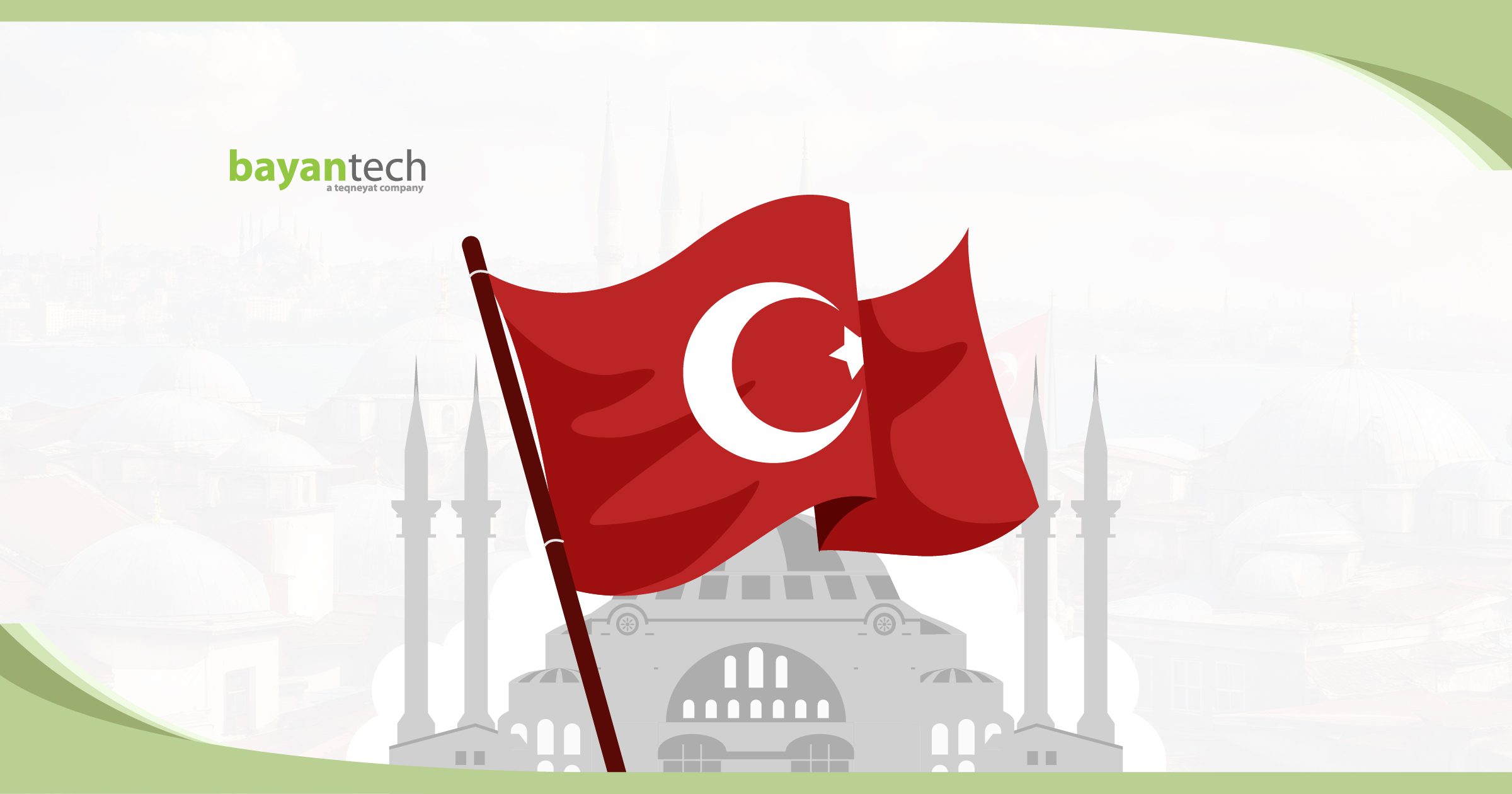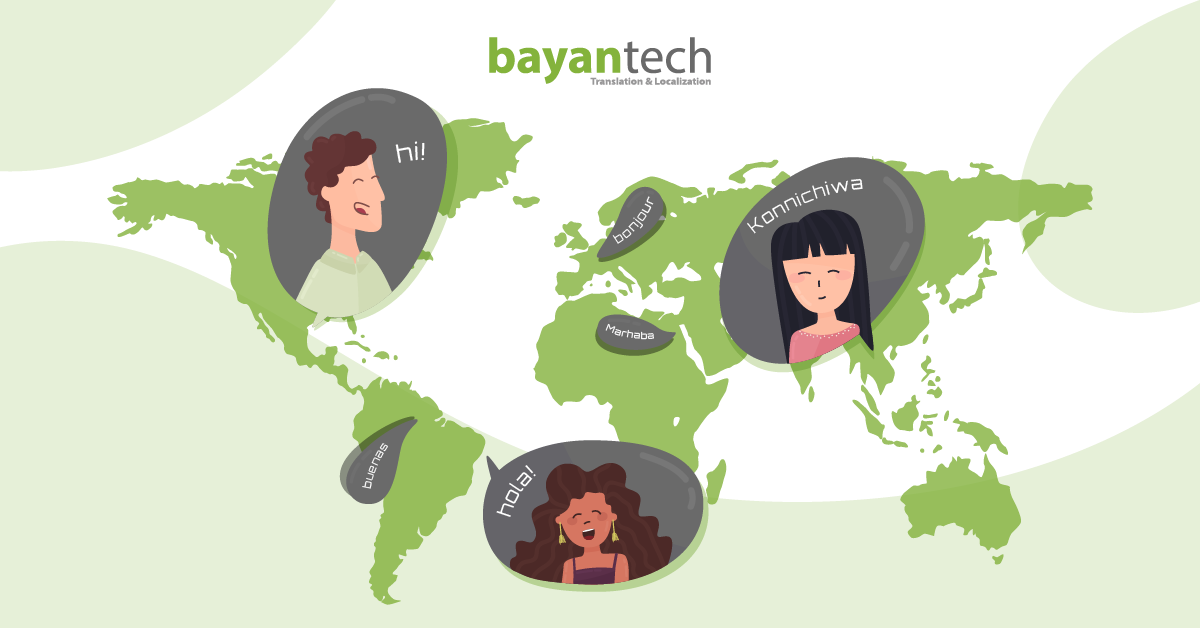Turkey is one of the transcontinental countries, connecting Asia and Europe, making it an appealing market for businesses seeking growth across borders.
Turkey’s unique location has led to not only business prospects but also the emergence of ethnic and linguistic diversity that evolved throughout history.
Today, there are around 30 languages spoken in Turkey. Despite this linguistic diversity, Turkish remains the official and most spoken language.
This guide will give you an overview of the main languages of Turkey and the communities that speak them.
What is The Official and National Language of Turkey?
Turkish is the official national language in Turkey. And it’s also the most widely spoken language in Turkey with 87.6% of the country’s population speaking it (74 million speakers).
As the primary language of communication, Turkish is used in education, administration, government, and media.
In fact, Article 42 of the Constitution of Turkey states that no language other than Turkish can be taught as a mother tongue to Turkish citizens in public educational institutions.
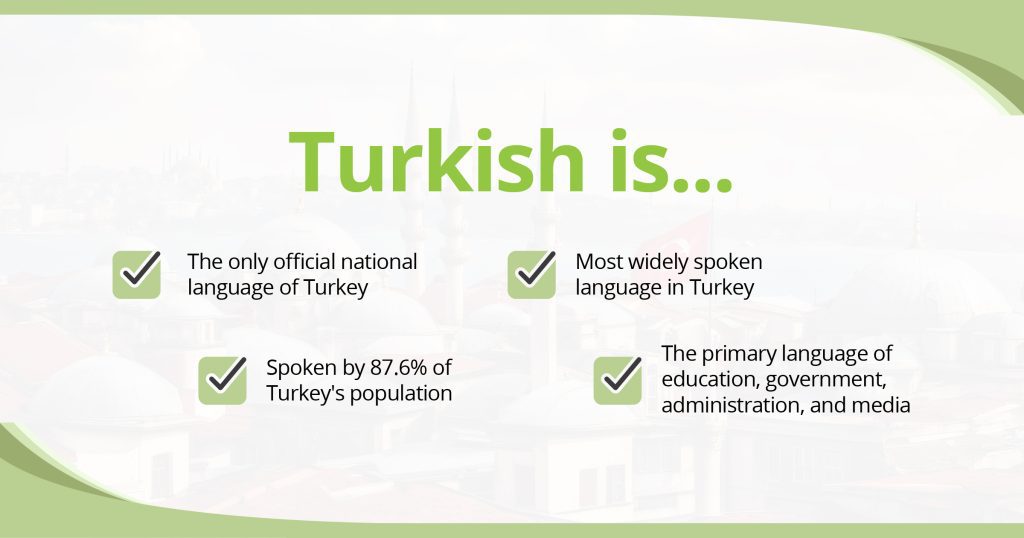
A Brief History of the Turkish Language
Turkish belongs to the Turkic language group. Modern Standard Turkish can be traced back to Old Ottoman Turkish, which emerged in Anatolia in the late 11th century.
Old Ottoman Turkish was heavily influenced by Arabic and Persian vocabulary and grammar and was written using the Arabic script.
However, in 1928, five years after the foundation of the Turkish Republic by Kemal Atatürk, he introduced a series of language reforms. One of the major changes was the replacement of the Arabic script with a new Latin-based Turkish alphabet.
This reform aimed to simplify the language, increase literacy rates, and align the written language with the Turkish spoken language.
Understanding the Minority Languages Spoken in Turkey
Aside from Turkish, there are various minority languages spoken in Turkey due to the diverse immigrant populations. These languages include:
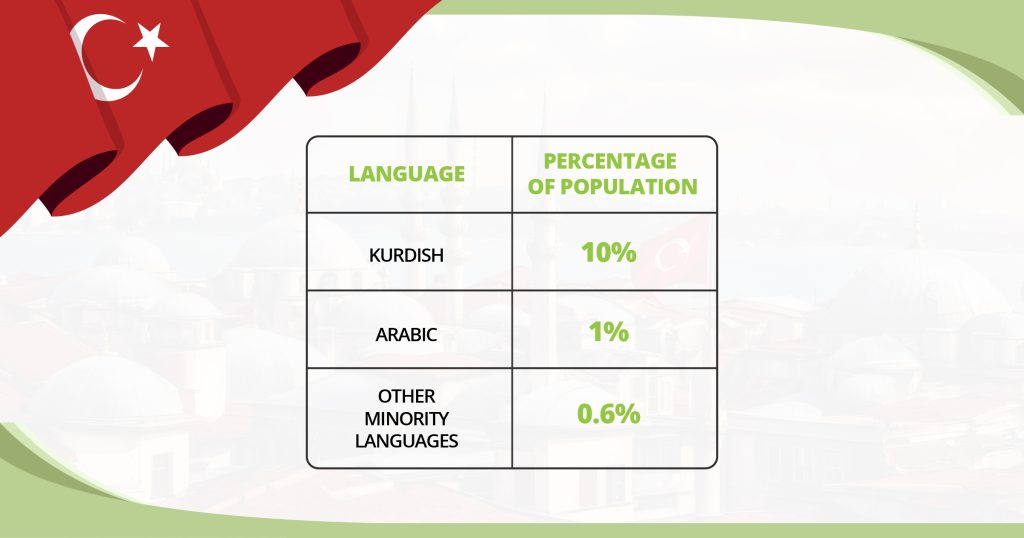
Now, let’s break each one of them down.
Kurdish
Kurdish, with its various dialects, is the largest spoken minority language in Turkey, with over 8 million speakers.
Kurdish, an Indo-European language, is exclusively spoken by the Kurdish communities in eastern Turkey, Iran, Iraq, and Syria.
Kurds are the largest minority group in Turkey, making up about 18% of the country’s population.
Moreover, the majority of Kurds live in Istanbul, while the rest live in southeastern Turkey.
Arabic
Another one of the minority languages spoken in Turkey is Arabic, with more than 1 million speakers.
This number is gradually increasing due to the influx of Syrian refugees, making the Arabic language the third most spoken tongue in Turkey.
Most of the Arab communities in Turkey live in Istanbul and other southeastern areas near the borders of Syria and Iraq.
Zazaki
Zazaki, also known as Zaza, is a Northwestern Iranian language spoken in Turkey by a small minority group named Zazas, who are considered ethnic Kurds.
There are more than one million Zazaki speakers in Turkey today.
Historically, linguists have regarded Zazaki as a Kurdish dialect although both are not entirely similar.
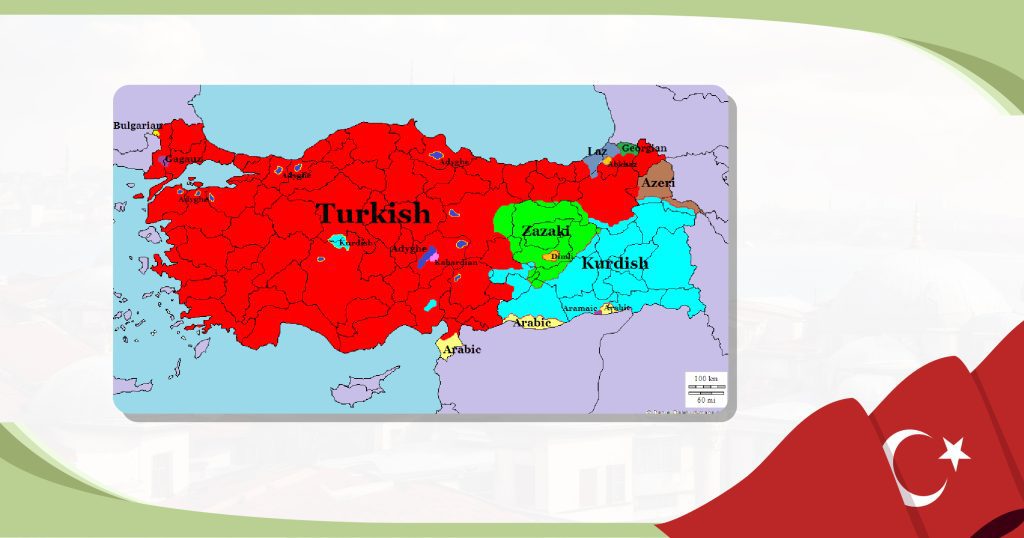
Other Minority Languages
- Armenian
Armenian is another minority language in Turkey. Over 61,000 Armenians are residing in the country, primarily in Istanbul.
The Armenian identity and language faced suppression in Turkey due to the ethnic cleansing Armenians were subjected to during World War I.
However, today, the Turkish government recognizes Armenians as a minority group, offering them legal protections and rights. (We’ll dig deeper into this later so keep reading!)
- Laz
Laz, a Caucasian language, is spoken by Laz communities along the Black Sea coast in northeastern Turkey. It is estimated that around 200,000 people speak Laz in Turkey.
Despite its significant number of speakers, Laz remains a language that is often overlooked in discussions of Turkey’s linguistic diversity.
- Georgian
Georgian, a Kartvelian language, is spoken by a small community in northeastern Turkey. There are approximately 15,000 Georgian speakers in Turkey.
- Ladino
Ladino, also known as Judeo-Spanish, is the language of Sephardic Jewish descendants who were expelled from Spain in the 15th century.
It is a variant of medieval Spanish that has evolved over time to incorporate elements of Hebrew, Turkish, and other languages.
Today, around 13,000 people speak Ladino in Turkey, and the government recognizes and legally protects their linguistic rights.
- Greek
Turkey is home to a small but historic Greek-speaking community, with fewer than 10,000 speakers remaining in the country.
Like other minority languages in Turkey, Greek speakers also enjoy legal protection from the government.
The Legal and Social Status of Minority Languages
When it comes to the rights of ethnic and linguistic minorities in Turkey, things can get a bit complicated.
The Treaty of Lausanne (1923) grants certain rights to speakers of Greek, Armenian, and Ladino, recognizing them as minority languages and offering some legal protection for their use.
On the contrary, this recognition is not extended to other, often more widely spoken, minority languages, such as Kurdish.
Languages like Kurdish and Zazaki, despite having millions of speakers in Turkey, face significant restrictions. They have limited official recognition and encounter obstacles in their use in education and public domains.
This discrepancy between the legal and social status of different minority groups has caused debates surrounding language rights and inclusivity in Turkey.
Despite these challenges, minority groups continue to push for greater recognition, equal social status, and the use of their languages within Turkish society.
Conclusion
If you’re planning to visit or do business in Turkey, you should know that Turkish will be the primary language of communication.
According to the EF survey, Turkey has a low English proficiency rate.
Given this low proficiency rate, translation and localization are crucial for businesses seeking connection with Turkish customers to overcome language and cultural barriers.
At bayantech, we offer professional Turkish translation services tailored to your business needs. Our experienced Turkish translators are native speakers who deeply understand the language, culture, and market dynamics.
We also provide Kurdish language translation, allowing you to reach the Kurdish-speaking communities using their own dialect.

